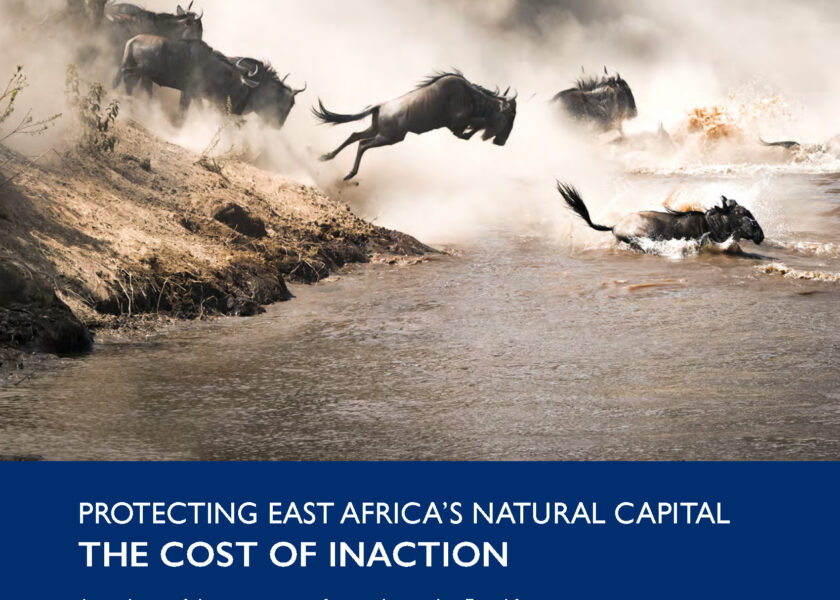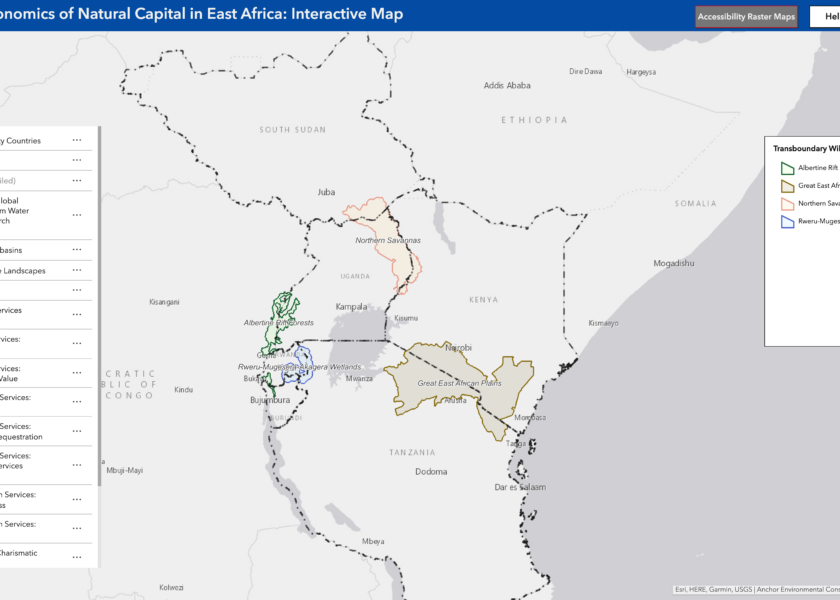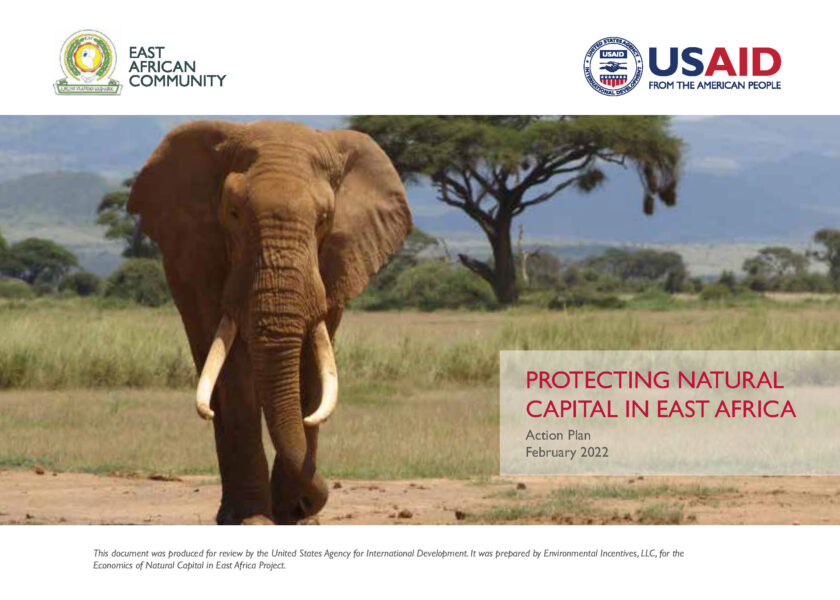
Regions
- Global
Clients
Partners
Through USAID’s Economics of Natural Capital in East Africa project, EI and Anchor Environmental strengthened the East African Community’s (EAC) regional policy dialogue by improving the evidence base on transboundary natural capital, natural resource management and biodiversity conservation. Working alongside the EAC Secretariat and Member States, conservation organizations, communities in the region, the private sector, and USAID, this Nairobi-based project (2019–2022) successfully:
- Increased access to analysis and evidence-based materials on the current and potential value of natural capital,
- Increased awareness by decision makers and the public on the current and potential value of natural capital in the context of unforeseen and anticipated external stressors,
- Increased cross-sectoral, action-oriented dialogue on conservation, resilience strengthening, and sustainable development,
- Identified innovative ideas and actions for improving sustainable economic growth in the region based on a natural capital approach, and
- Informed decision making for the management of natural capital across the region.
Project Outcomes
The project team produced a landmark study, “Protecting East Africa’s Natural Capital: The Cost of Inaction,” the first of its kind to determine the value of ecosystems, their services, and the natural capital in four transboundary landscapes. The study was adopted by the East African Community Technical Expert Group.
Stakeholders used the study to develop an Action Plan to inform regional policymaking. Both the study and Action Plan were validated at a USAID-funded meeting of multisectoral technical experts, presented at the 2022 African Protected Areas Congress, and submitted to the 8th Meeting of the EAC Sectoral Council on Environment and Natural Resources Management, which directed the Secretariat to mobilize resources accordingly.
“Governments, businesses, communities and millions of people mutually depend on and impact these ecosystems. By affirming this Action Plan, we are taking an important step toward protecting all of these interests for future generations.”
Jean Baptiste Havugimana, EAC Director of Productive Sectors


